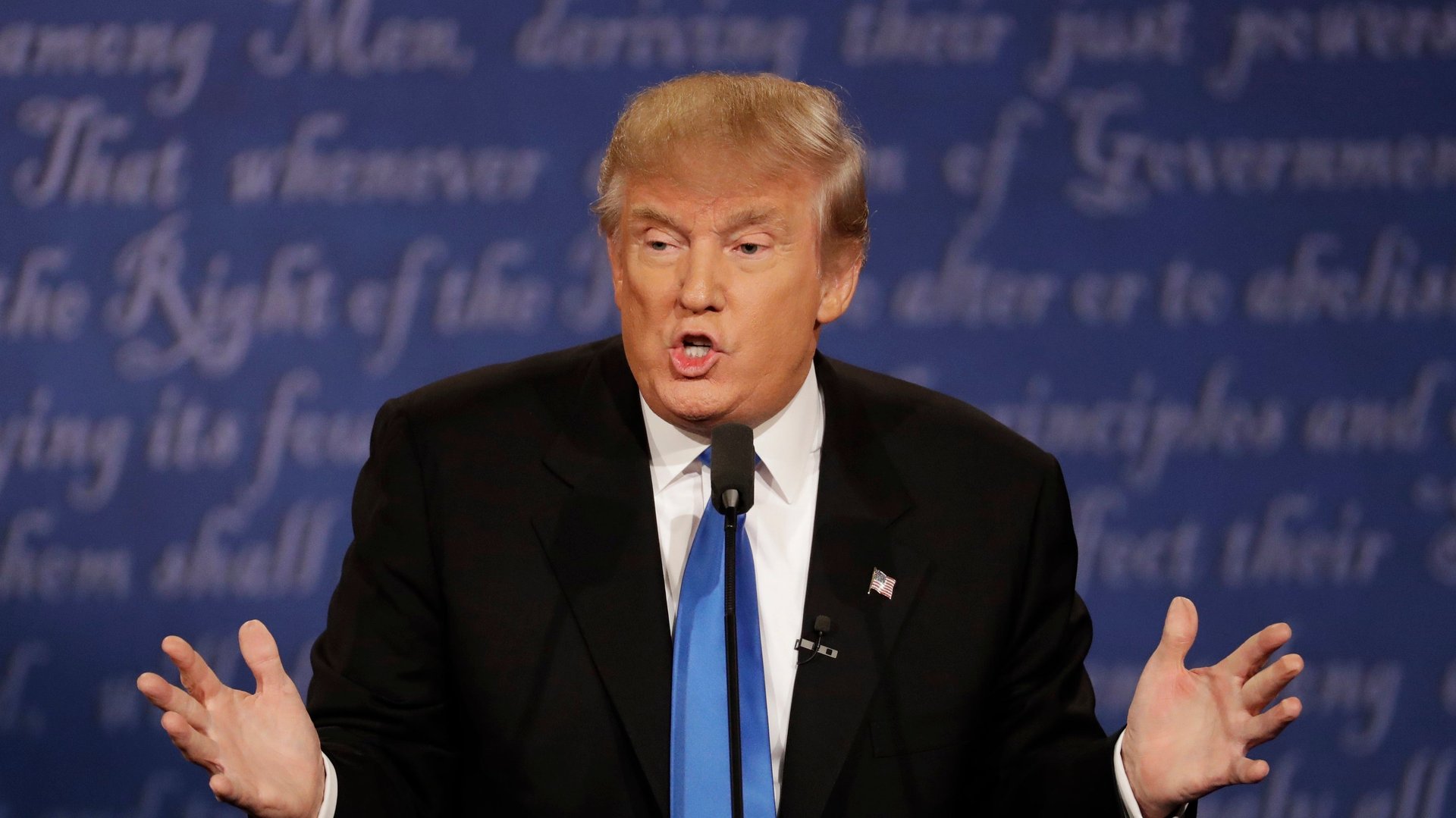Donald Trump just made a great case against electing a businessman as president
Within minutes of the beginning of the first presidential debate, Democratic nominee Hillary Clinton brought up some of Donald Trump’s more thoughtless past comments—in particular, a 2007 snippet in which the real estate mogul said he was “excited” for the housing market crash that would come a year later.


Within minutes of the beginning of the first presidential debate, Democratic nominee Hillary Clinton brought up some of Donald Trump’s more thoughtless past comments—in particular, a 2007 snippet in which the real estate mogul said he was “excited” for the housing market crash that would come a year later.
“People have been talking about the end of the cycle for 12 years, and I’m excited if it is,” he told The Globe and Mail. “I’ve always made more money in bad markets than in good markets.”
When Clinton told viewers that Trump had “rooted” for the recession, Trump shot back, “that’s called business.”
Later, Clinton claimed Trump was wary to release tax returns because he hasn’t paid his fair share in federal taxes. “That makes me smart,” Trump quipped.
“I take advantage of the laws of the nation,” he said, shrugging, when Clinton brought up conversations with various contractors who had been allegedly stiffed by Trump’s company.
If Trump’s bid for the presidency is based on his (ostensible) success as a businessman, does this mean we can expect him to run the country like he has run the Trump Organization? Avoiding accountability whenever possible and leading from a place of, first and foremost, personal enrichment? That’s not an especially compelling argument for a marriage of big business and executive politics—in a democracy, at least.